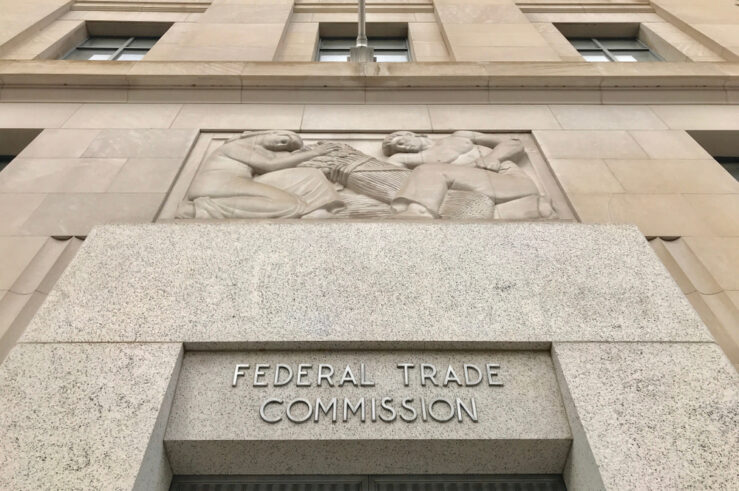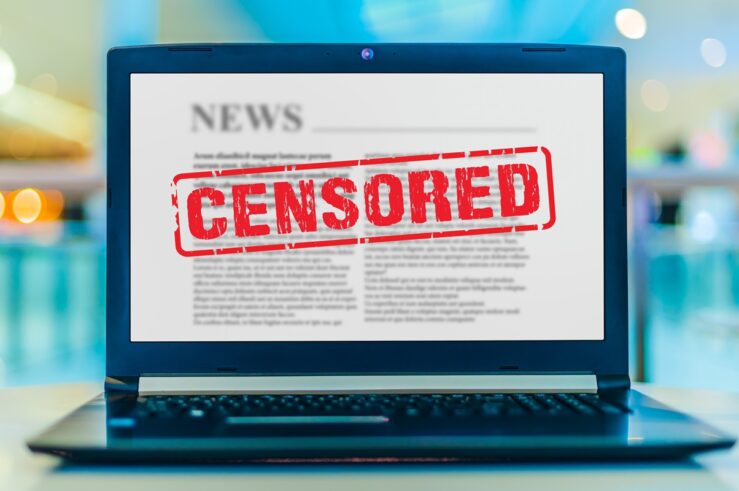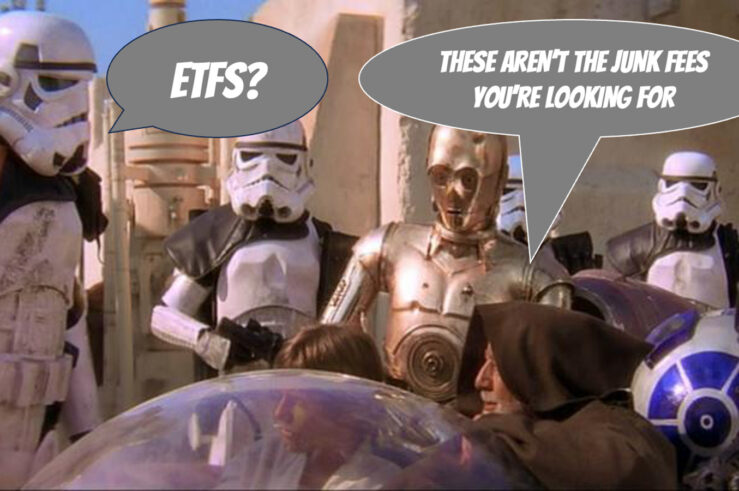Showing results for: “patent litigation rate”
The FTC Should Not Enact a Deceptive or Unfair Marketing Earnings-Claims Rule
Back in February 2022, the Federal Trade Commission (FTC) announced an advance notice of proposed rulemaking (ANPRM) on “deceptive or unfair earnings claims.” According to the FTC: [The Deceptive or Unfair ANPRM was aimed at] challenging bogus money-making claims used to lure consumers, workers, and prospective entrepreneurs into risky business ventures that often turn into ... The FTC Should Not Enact a Deceptive or Unfair Marketing Earnings-Claims Rule
Whose Failure Is the Failed Amazon/iRobot Merger?
The European Commission told Amazon in November 2023 of its preliminary view that the company’s proposed acquisition of iRobot restricted competition in the market for robot vacuum cleaners (RVCs) and could hamper rival RVC suppliers’ ability to compete effectively. The deal, the Commission asserted, would give Amazon incentive to foreclose iRobot’s competitors by engaging in ... Whose Failure Is the Failed Amazon/iRobot Merger?
DMA: Setting the Goalposts
In a little less than a month, the European Union’s Digital Markets Act (DMA) will start to bite, but how will it taste? By March 7, companies that were designated as “gatekeepers” in September 2023 will be required to meet the obligations of Articles 5, 6, and 7 of the DMA Regulation. With the exception ... DMA: Setting the Goalposts
Navigating the AI Frontier, Part I
The European Union is on the verge of enacting the landmark Artificial Intelligence Act (AI Act), which will—for better or worse—usher in a suite of new obligations, and hidden pitfalls, for individuals and firms trying to navigate the development, distribution, and deployment of software. Over the coming months, we will be delving into the nuances ... Navigating the AI Frontier, Part I
March-Right-on-In Rights?
The National Institute for Standards and Technology (NIST) published a request for information (RFI) in December 2023 on its “Draft Interagency Guidance Framework for Considering the Exercise of March-In Rights.” It’s quite something, if not in a good way. March-In Rights Provide Very Limited Exceptions to Intellectual-Property Rights What are “march-in” rights? In brief, they ... March-Right-on-In Rights?
ICLE’s Amicus Briefs on the Future of Online Speech
Over the past few months, we at the International Center for Law & Economics (ICLE) have endeavored to bring the law & economics methodology to the forefront of several major public controversies surrounding online speech. To date, ICLE has engaged these issues by filing two amicus briefs before the U.S. Supreme Court, and another in ... ICLE’s Amicus Briefs on the Future of Online Speech
Using Bayh-Dole March-in to Set Patent Price Controls: An Assault on American Innovation
Under the Bayh-Dole Act, the federal government has the right to “march in” on patents on inventions created using taxpayer funds—to require the patentholder to license the federally funded patent to other applicants. The terms of the license must be “reasonable under the circumstances.” The act limits the exercise of march-in to specific circumstances related ... Using Bayh-Dole March-in to Set Patent Price Controls: An Assault on American Innovation
The FTC’s Misguided Campaign to Expand Bayh-Dole ‘March-In’ Rights
The Federal Trade Commission (FTC) has now gone on record in comments to the National Institute of Standards and Technology (NIST) that it supports expanded “march-in rights” under the Bayh-Dole Act (Act). But if NIST takes the FTC’s (unexpected, but ultimately unsurprising) contribution seriously, such an expansion could lead to overregulation that would ultimately hurt ... The FTC’s Misguided Campaign to Expand Bayh-Dole ‘March-In’ Rights
Are Early-Termination Fees ‘Junk’ Fees?
Cable and satellite companies often get a bad rap for early termination fees (ETFs). Consumer advocates portray them as “junk fees” or billing traps meant to cheat customers. And the Federal Communications Commission (FCC) appears to accept these allegations at face value, characterizing ETFs as “junk fee billing practices … that penalize subscribers for terminating ... Are Early-Termination Fees ‘Junk’ Fees?
The Curious Case of the Missing Data Caps Investigation
In an announcement that was treated to mild fanfare (meaning it was reported by certain tech blogs, but largely ignored elsewhere), Federal Communications Commission (FCC) Chair Jessica Rosenworcel asked her fellow commissioners in June 2023 to support a formal notice of inquiry (NOI) to learn more about how broadband providers use data caps on consumer ... The Curious Case of the Missing Data Caps Investigation
The WHO’s Insufficient Curiosity and Humility
Five months from now, health ministers from the 194 sovereign states recognized by the United Nations (UN) will meet in Geneva to discuss and possibly agree to amendments to the International Health Regulations (IHRs), which are intended to “prevent, protect against, prepare, control and provide a public health response to the international spread of diseases.” ... The WHO’s Insufficient Curiosity and Humility
How the FTC’s Amazon Case Gerrymanders Relevant Markets and Obscures Competitive Processes
As Greg Werden has noted, the process of defining the relevant market in an antitrust case doesn’t just finger which part of the economy is allegedly affected by the challenged conduct, but it also “identifies the competitive process alleged to be harmed.” Unsurprisingly, plaintiffs in such proceedings (most commonly, antitrust enforcers) often seek to set ... How the FTC’s Amazon Case Gerrymanders Relevant Markets and Obscures Competitive Processes
















